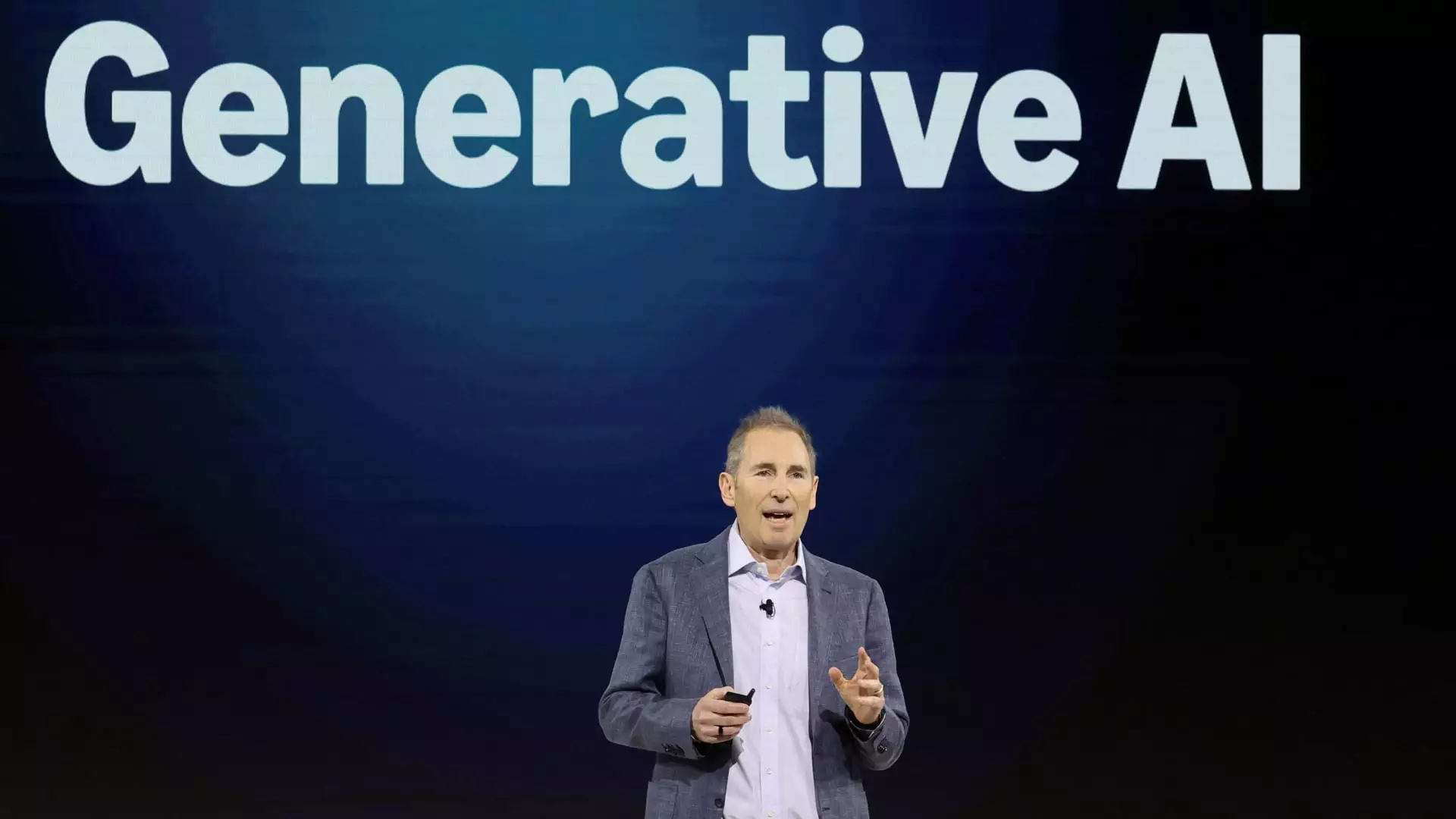Amazon’s latest foray into artificial intelligence marks an intriguing chapter in the realm of e-commerce. With generative AI swiftly transforming consumer interactions, the tech giant has introduced innovative offerings aimed at enhancing shopping experiences. The mainstreaming of AI across platforms is not merely a technical upgrade; it signifies a paradigm shift that could redefine consumer expectations. The key question looms: is this progress a boon for shoppers, or a veiled attempt by Amazon to monopolize the digital marketplace?
The advent of features like Interests AI—a tool allowing users to describe product interests conversationally—illustrates Amazon’s ambition to create a more personalized shopping journey. This isn’t mere salesmanship; it’s an acknowledgment that consumers are ready for a more interactive retail experience. The willingness of users to engage with an AI using their own language is an encouraging sign that echoes the demand for tailored experiences in an ocean of one-size-fits-all solutions.
Empowering Consumers or Crafting Dependence?
While the promises of personalization and ease of use sound alluring, one cannot ignore the potential pitfalls of such technology. As Amazon continues to amplify its investments in AI, we must critically evaluate the ethical implications surrounding this reliance on digital assistants. The AI-driven shopping narrative risks fostering a culture of dependence—one where consumers may unwittingly surrender their agency to algorithms that prioritize commercial interests over personal needs. The risk here isn’t just about losing touch with curated shopping; it is about the subtle erosion of critical thinking when consumers allow AI to dictate their choices.
Let’s not ignore the staggering number of 1,000 generative AI applications reportedly being developed within the company. While this suggests an aggressive push towards innovation, it simultaneously raises alarms about data privacy and what happens to consumer information once it falls into the black box of AI analytics. As we engage with these tools, are we cognizant of how our data is being utilized, or do we simply enjoy the convenience?
Health AI: A Double-Edged Sword
Amazon’s introduction of Health AI poses critical questions about the company’s ambition to extend its reach into healthcare. Providing medical guidance via an AI chatbot could democratize information access, but it comes with caveats. While the feature aims to deliver common care options and health advice, its disclaimer that it cannot offer personalized medical advice is sobering. AI should not be a replacement for human health professionals; it can provide information, yes, but when it comes to healthcare, the nuances of individual needs demand a human touch.
Moreover, the incorporation of “clinically verified” badges only partially mitigates concerns. Just because information is vetted doesn’t mean that the complexity of healthcare can be distilled into simple, digestible AI responses. We ought to ask ourselves: are we ready to place our health in the hands of an algorithm that may not grasp the intricacies of our personal medical histories?
The Competitive Landscape: Racing Towards Monopolization
In an age where generative AI is blossoming, Amazon’s strategy appears to be not only to innovate but also to dominate. As it encourages consumers to prefer its services over competitors like OpenAI’s ChatGPT, one can’t help but wonder about the long-term ramifications of this drive for market supremacy. Will Amazon’s AI innovations genuinely enhance our shopping experience, or will they press us further into a commercial ecosystem that discourages exploration outside its offerings?
As we observe changes in AI-driven interactions, particularly with impending updates to Alexa, we must remain vigilant. The emergence of Alexa+—revamped with generative AI capabilities—could further entrench Amazon’s influence, transforming Alexa into an intermediary that mediates our interactions not just with shopping, but potentially with our everyday life as well. Such technology could erode our autonomy, relegating us from active participants to passive consumers of a curated digital experience shaped by Amazon’s algorithms.
The narrative being woven around Amazon’s generative AI endeavors is multifaceted—a delicate balance hangs between innovation and overreach. It’s an exciting time for e-commerce, yet as with every cutting-edge development, caution is essential. The integration of AI into various sectors, while promising to enhance efficiency and personalization, presents us with an array of ethical concerns that should not be brushed aside as mere technicalities. Consumers would do well to remain critical as they navigate this brave new world.

Leave a Reply